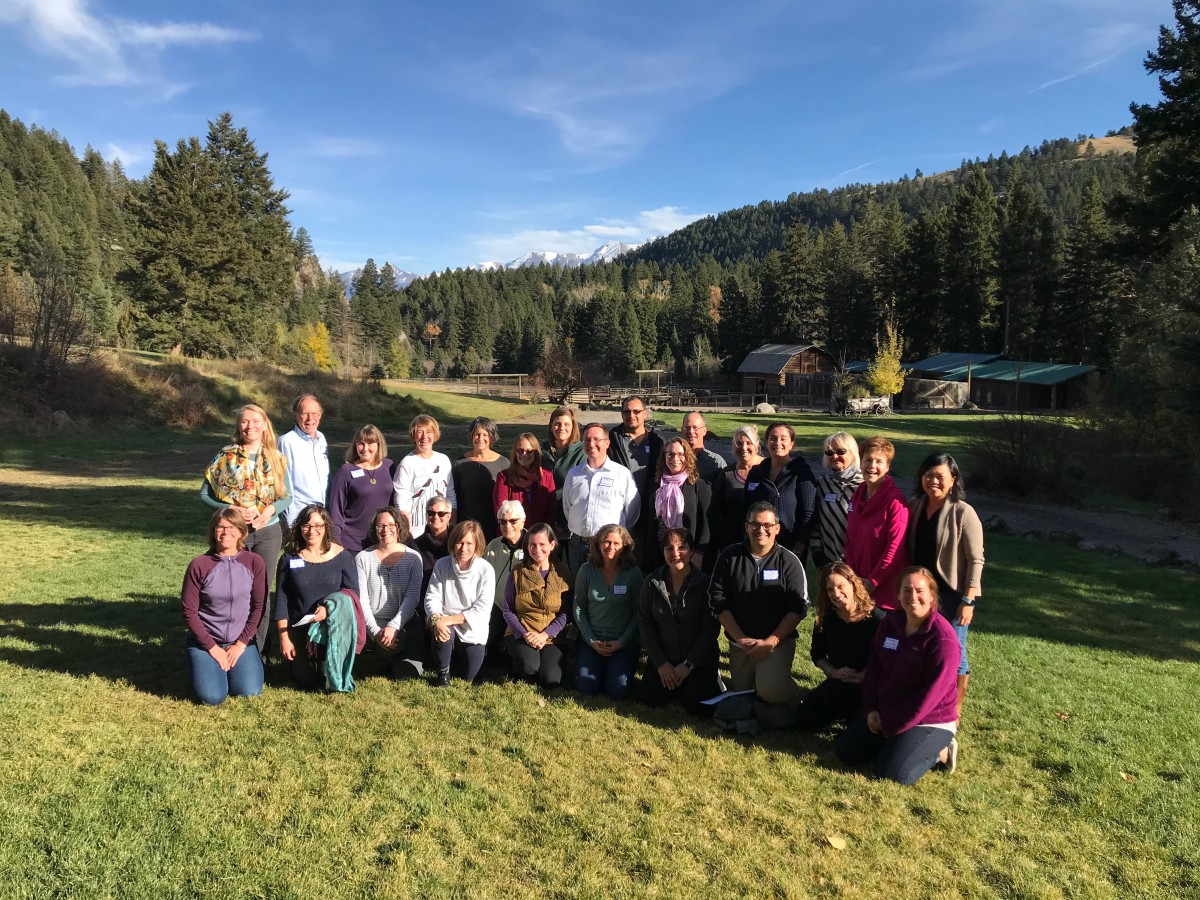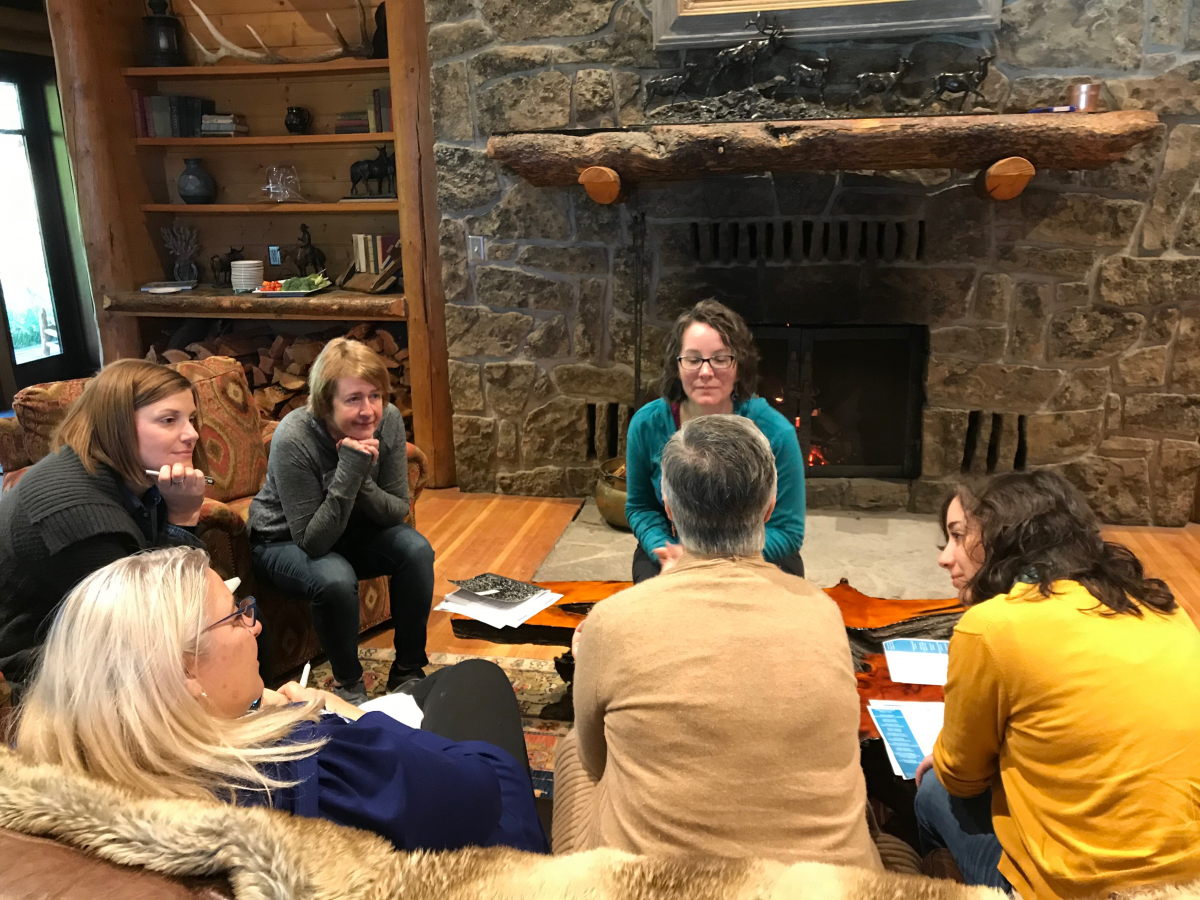In late October, Philanthropy Northwest hosted its National Rural Funders Gathering at Mountain Sky Guest Ranch in Emigrant, Montana. About 64 percent hailed from Alaska, Idaho, Montana, Washington, Wyoming and Oregon, including eight Philanthropy Northwest members. Other participants traveled from across the country, even as far away as Arkansas, Minnesota and Vermont. The attendees included traditional funders, representatives from government, tribal nations, as well as CDFIs and other philanthropic practitioners.
The conversation ranged from how to invest and advocate in diversity, equity and inclusion (DEI) to current financial and economic realities. These challenging issues, including job losses and state and federal budget cuts, disproportionately impact rural communities in the Northwest.
 “I feel like someone has handed me the secret decoder ring that allows me to understand a language so I can learn from people I barely knew existed,” said Sarah Lee, who works for the Washington Department of Commerce and is leading Opportunity Zone efforts in Washington State.* “I gained so much insight and got so much great advice that will bring our work to a whole new level.”
“I feel like someone has handed me the secret decoder ring that allows me to understand a language so I can learn from people I barely knew existed,” said Sarah Lee, who works for the Washington Department of Commerce and is leading Opportunity Zone efforts in Washington State.* “I gained so much insight and got so much great advice that will bring our work to a whole new level.”
If you don’t live in a rural place or interact frequently with those that do, it can be hard to envision what this looks like on the ground. Here are a couple of examples that surfaced from attendees that shed light on why rural funders must advocate for their needs:
- A community block grant from the county health department requires a long drive to present to commissioners. The organization can’t afford to have employees driving that far, but if it doesn’t bid, the community it serves will lose another essential prevention service for local schools. The so-called “consolidated services” or “spoke model” embodies how these challenges arise.
- A reservation community where the child protection office formerly had three social workers, closed and moved 300 miles away as part of a state consolidation that merged four rural counties. How is that office supposed to ensure the social welfare of rural kids, including handling investigation, rehabilitation and reunification, and child removals? How can families follow this legal process with distances like this?
Talking with actual rural people helps elevate solutions that work, ranging from simply communicating candidly with grantees to build more trust, advocating for a sales tax, participating in public-private partnerships, and funding community-led visioning processes like what’s taken place in Park County, Montana, where the fast-growing community of Livingston is located.
 “I loved the conversation atmosphere of this weekend,” said Jane Wheeler, a board and grants committee member with Oro Y Plata, a Montana-based foundation. “The opportunity to learn how to truly engage in philanthropy, to partner with communities doing and wanting to do great things for themselves made me reflect on what we are going in our foundation and how we might change or enhance it.”
“I loved the conversation atmosphere of this weekend,” said Jane Wheeler, a board and grants committee member with Oro Y Plata, a Montana-based foundation. “The opportunity to learn how to truly engage in philanthropy, to partner with communities doing and wanting to do great things for themselves made me reflect on what we are going in our foundation and how we might change or enhance it.”
A major takeaway from attendees was that the importance of place and building trust in one another cannot be underestimated. Sharing stories and continuing to work together to raise awareness about the particular needs and challenges of rural areas will be key.
“I will be looking more holistically at the role of community and others as part of the ecosystem of generational, adaptive community work.” Alexis Halbert with The Orton Family Foundation, which is based in Vermont and funds rural projects nationally. “This group’s wisdom in rural philanthropy is a beacon in the larger philanthropic world, blazing a trail for deep, authentic collaboration for community self-determination.”
* For more information about Opportunity Zones in your state, see these resources:


